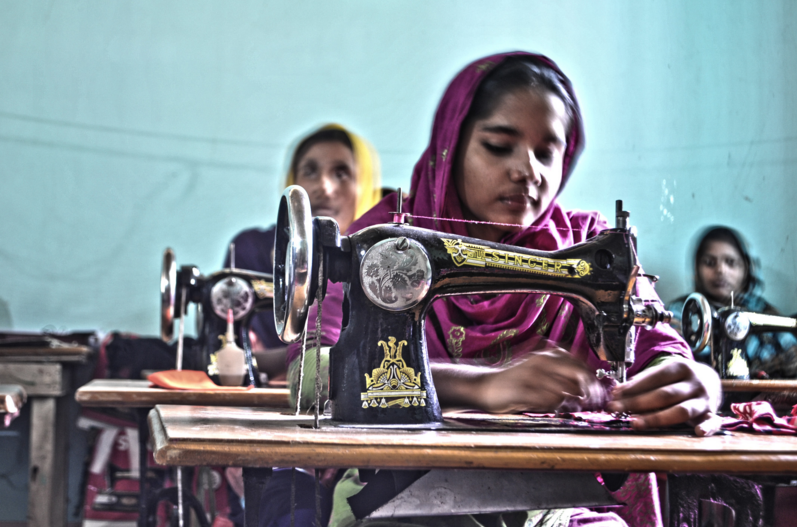Zara, Country Road, Cotton On amongst big fashion retailers commended in latest ethical fashion report
Three years on from Bangladesh’s Rana Plaza factory collapse that killed 1,136 garment workers, the fashion industry still has a long way to go to address forced labour, child labour and exploitation of workers, according to a new report.
 The annual Baptist World Aid report, released today, assessed 87 companies and graded them from A to F based on their performance of mitigating the risk of exploitation in their supply chains particularly in developing regions like India, Bangladesh, China, Myanmar, Uzbekistan and Cambodia.
The annual Baptist World Aid report, released today, assessed 87 companies and graded them from A to F based on their performance of mitigating the risk of exploitation in their supply chains particularly in developing regions like India, Bangladesh, China, Myanmar, Uzbekistan and Cambodia.
Among the top performers were Fairtrade companies including Etiko and Audrey Blue/Mighty Good, who received A+ grades. The next best performer was one of the world’s biggest fashion retailers, Inditex (Zara), which received an A grade.
Other Australian brands including Cotton On Group, APG & Co (Saba, Sportscraft, Willow, JAG), Country Road Group and Pacific Brands (including Bonds, Berlei and Jockey) also received good grades, with what Baptist World Aid calls a “commendable B+”. The median grade was C+.
The worst-performing brands include Seed Heritage, Victoria’s Secret, Forever 21 and General Pants, all scoring a D or F grade.
Gershon Nimbalker, Baptist World Aid’s advocacy manager says a bad grade shows that consumers can’t be confident that brands know who is making their clothes, or the condition those clothes are made in.
The research found that two thirds of companies were not taking any action to ensure workers received a living wage to meet their basic needs. With continued pressure to chase the lowest possible production costs, companies are still struggling to provide a living wage – a way that is sufficient for workers to be able to afford food, water, shelter, clothing, power, healthcare and education for themselves and their dependents. A living wage is recognised as a human right.
According to Baptist World Aid, consumers are curious to know how much extra it would cost per garment to ensure workers receive a decent wage. While that calculation is complex, Planet Money, a radio programme on National Public Radio (NPR) in the US estimated the total labour cost of t-shirt production in Bangladesh at around 50c (US) per shirt.
“To achieve a living wage, then, the additional cost may be as low as 40c US per t-shirt,” says Baptist World Aid in its report. Companies including H&M, Kmart Australia and Pacific Brands are making commendable efforts in improving initiatives to provide a living wage. However, only Fairtrade companies Etiko and Audrey Blue could consistently demonstrate that a living wage is paid to its workers in the final production stages.
“We hope consumers use this research and our ethical shopping guide to vote with their wallets and help transform the practices of fashion companies. Likewise, we urge apparel companies to do more to trace their entire supply chain all the way down to the raw material level and ensure they are paying workers a living wage.”
You can get a copy of the Baptist World Aid Ethical Fashion Guide here.
Email This Story
Why not send this to a friend?

